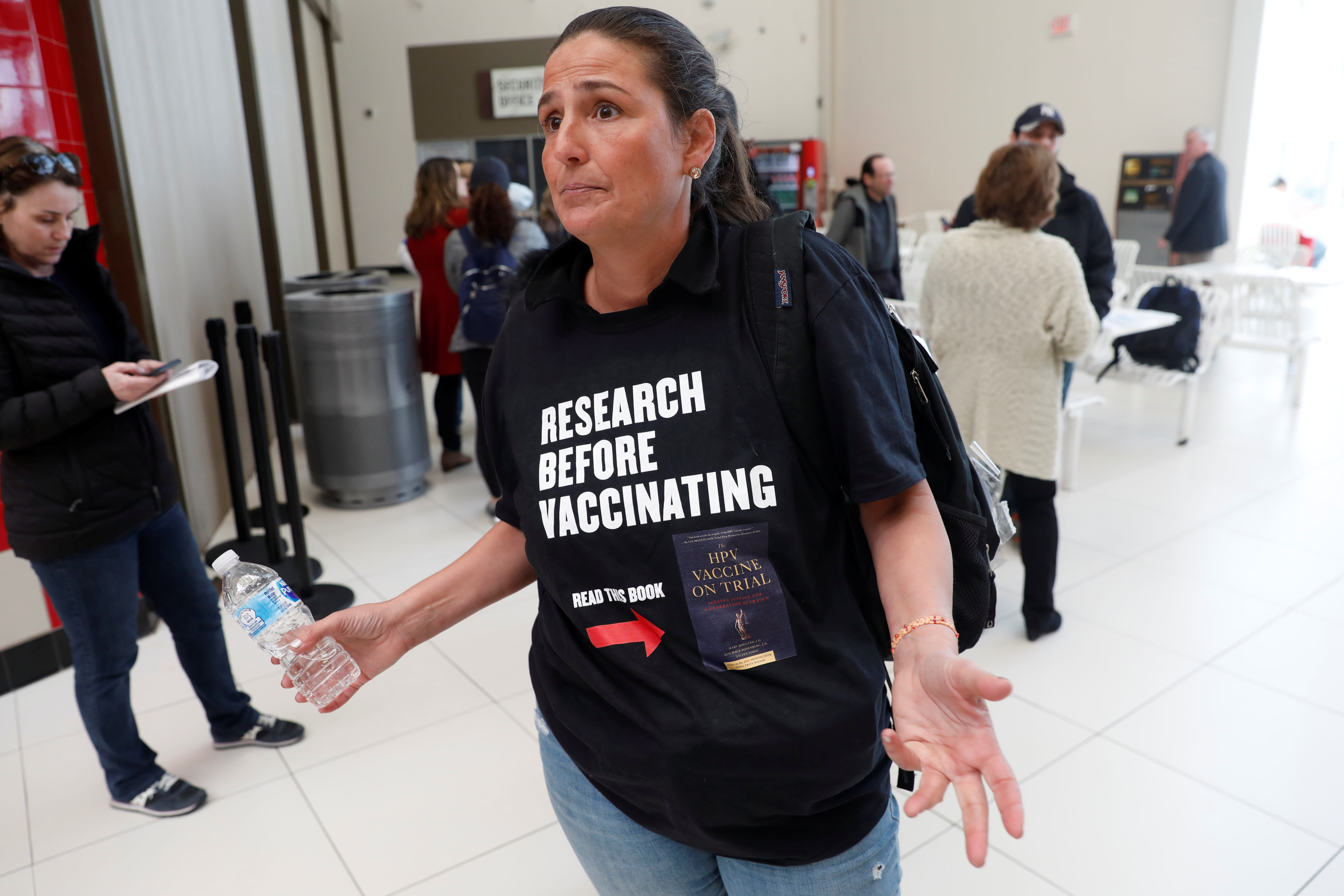The agenda of anti-vaccination activists may be causing a drag on the U.S. economy as the measles outbreak forces people to stay out of work and seek medical care, the director for the National Institute of Allergy and Infectious Diseases said Monday.
"If you wind up getting more infections and diseases that were vaccine-preventable, those are entirely avoidable burdens on the economy," Dr. Anthony Fauci told CNBC. "When people get sick, they lose work, they lose their finances from work, [and] they have hospital costs."
There's no official data yet on how this year's measles outbreak — now the worst in the U.S. since the disease was declared eradicated in 2000 — may impact the economy in the near term.
However, data from the Centers for Disease Control and Prevention in 2013 showed a person hospitalized with measles can run up a hospital bill ranging from $4,032 to $46,060. Additionally, a University of North Carolina study showed vaccine-preventable diseases among adults cost the economy nearly $9 billion in 2015, with unvaccinated individuals responsible for 80% of those costs. The study was funded by Merck, a leading producer of vaccines.
On Friday, President Donald Trump, who had questioned the safety of vaccines in the past, urged people to get measles shots. Health officials in New York, where the current outbreak is the worst, have declared public health emergencies, and they're scrambling to vaccinate people. The Food and Drug Administration is also reiterating to the public that vaccines are safe and effective.
The latest numbers from the CDC, released Wednesday, show 695 measles cases in 22 states.
The calls for action from federal and local officials come amid growing misinformation efforts by anti-vaccination activists, a vocal fringe who oppose inoculations. They believe, contrary to scientific evidence, that ingredients in vaccine can cause harm to the body.
Fauci, who helped develop a vaccine against AIDS, warned that measles itself is dangerous and can kill. The disease, before vaccines were available, killed an average of 2 million to 3 million people a year globally, he said. "In the United States, there were about 2 million cases [of measles] and about 500 deaths per year."
"The misinformation that measles is not a serious disease is just not true," Fauci added in the interview on "Squawk Box. "
For more on investing in health -care innovation, click here to join CNBC at our Healthy Returns Summit in New York City on May 21.


